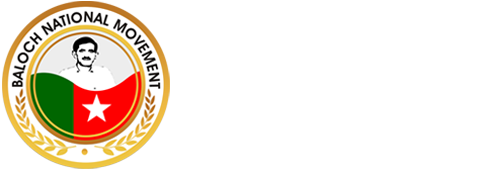
Chairman Baloch National Movement Khalil Baloch, in a statement issued at the end of the year, has drawn a sketch of Pakistani atrocities in Balochistan.
“Pakistan has waged a dirty war in Balochistan that according to international laws comes in category of mass killing,” Khalil Baloch said in his announcement.
“Since the occupation of Balochistan from 1948, Pakistan has been trampling all international laws to strengthen its exploitation and occupation of Balochistan; meantime, Pakistan is violating all international laws, particularly the Geneva Convention”.
He said Pakistan was using a multi-tiered military approach to counter the Baloch national struggle. He particularly mentioned the following means:
Military and paramilitary forces:
He said the Pakistan military and Frontier Corps (FC) are directly carrying out the genocide of the Baloch people in occupied Balochistan. This is the same army that killed 3 million Bengalis. It is repeating the same crimes in Balochistan; the only difference is that in Bangladesh the mass genocide of Bengalis was committed in a short spin of time, and India immediately responded by freeing Bengalis.
Unfortunately, neighboring countries of Balochistan are plagued with their own internal problems that are not in position to extend a helping hand to the Baloch people. This is one of the main reasons that the Baloch nation has been suffering for the last 70 years. If this bestial army can genocide 3 million within 9 months, one can only imagine what extent of catastrophe it has brought herein Balochistan. Therefore, it is the prime responsibility of the United Nations and other world bodies to intervene and do not let us down.
Formation of death squads
Pakistan has established death squads in Balochistan as they did in Bangladesh in the form of Al-Shams and Al-Badr. Pakistan has past experiences of forming such proxy organizations that play as the second tier of the army. They have already admitted the existence of such groups on several occasions. On 24th December last year, Dr Malik, in an interview with Herald, confirmed that his provincial government had to cancel special cards issued by intelligence agencies to several members of death squads.
Rashid Pathan, Mullah Barkat, Ali Haider Mohammed Hasni, internationally wanted drug lord Imam Bheel and other gangs have established their individual death squads under the patronage of National Party of which Dr Malik was the President.
Besides, Saraj Raissani, the younger brother of ex-Chief Minister Aslam Raisani, and several workers of current Chief Minister Sanaullah Zehri are working for different death squads. Sanaulah Zehri’s brother Zaib and his son had been leading such death squads.
These death squads are forming an army of social outcasts, identify political workers, coordinate with the military and FC to arrest them or target-kill them. They, in return, are given special cards to freely commit any sort of crime.
Religious extremism:
The entire world is aware about the fact that Pakistan has been using religious extremism as security assets. Pakistan Army is not only a Sunni extremist force but also its formation was based on religious extremism. Pakistan has become a hub and export center of religious terrorists. Religion has become a means of business as well as a driving force to promote state sponsored narratives.
Pakistan has been syphoning off money from the world in the name of the war on terror. At the same time, Pakistan uses the religious narrative to fill the vacuum of its ambiguous history and culture.
Pakistan is currently sponsoring a number of religious groups in Balochistan to counter the Baloch nationalistic narrative. Even Daesh-ISIS has been provided with sanctuaries by Pakistan throughout Balochistan.
Killing of political leaders:
Pakistan has been targeting Baloch political leaders. Leaders of BNM, BRP and BSO-AZAD are on the hit list of Pakistan’s Army and security agencies. This policy aims to discourage and intimidate political workers to give up their right cause for a free Balochistan. They have assassinated several prominent Baloch leaders, including Ghulam Mohammad Baloch, Nawab Akbar Khan Bugti, Nawabzada Balach Marri, Lala Munir, Dr Mannan and Sher Mohammad.
Ban on political parties:
Pakistan has imposed a ban on Baloch political parties, including the BNM, BRP and the BSO-AZAD. Pakistan applies a method of abduction and killing on spot to suppress the voice of political leaders and workers. There is an unending list of political activists either abducted or killed by intelligence agencies and security forces. Dr. Deen Mohammad Baloch, Ghafoor Baloch, Ramzan Baloch, Zahid Baloch, Zakir Majeed and thousands others have been abducted and are missing. Raza Jahangir, Rasool Bakhsh Mengel, Imdad Bojeer, Shafi Baloch and hundreds more were either assassinated on the spot or killed after abduction and torture.
Policy of collective punishment:
Pakistan has formulated a new policy of collective punishment. After abducting, killing and dumping Baloch political leaders, workers, social activities and sympathizers for a free Balochistan, Pakistan has now opted for a new atrocious policy of collective punishment, in which security forces are abducting and killing the relatives and neighbors of activists. The abduction of women and children from Karachi, Mashkay and Raghai are part of this gruesome policy of collective punishment. Similarly, they abducted the wife of Dr Allah Nazar and his four years old daughter along with other women from Quetta. They were released after physical and mental tortures.
The forces abducted two sisters of Dr Allah Nazar from Mashkay and Raghai. In military operations in Mashkay, Raghai, Kolwah and Gichk, several women and children were arrested and shifted to unknown places.
In 2017, Pakistan conducted 934 raids and operations in which more than 2,000 were forcibly disappeared, 204 were murdered, 500 houses were burnt and 1,500 cattle were looted by the Pakistan military forces.

